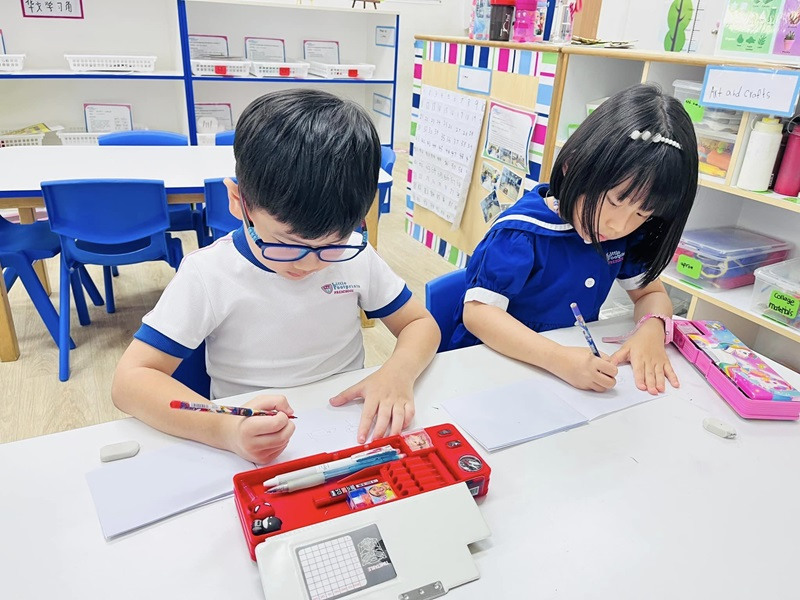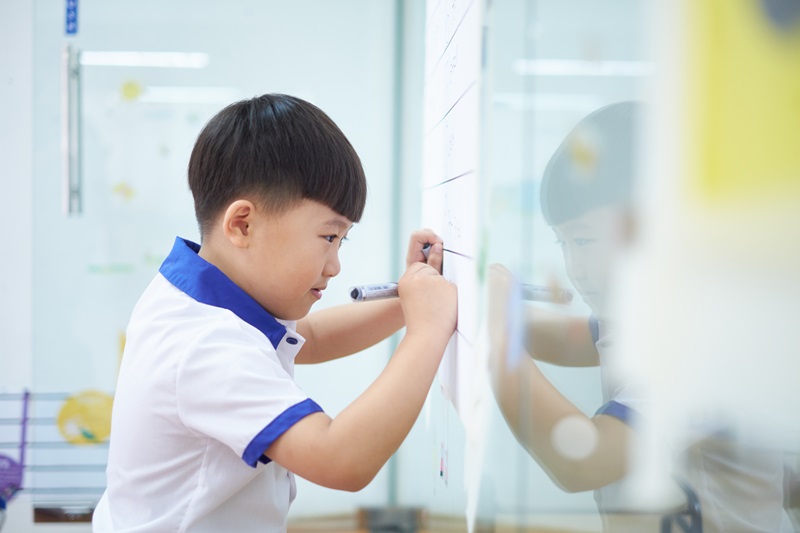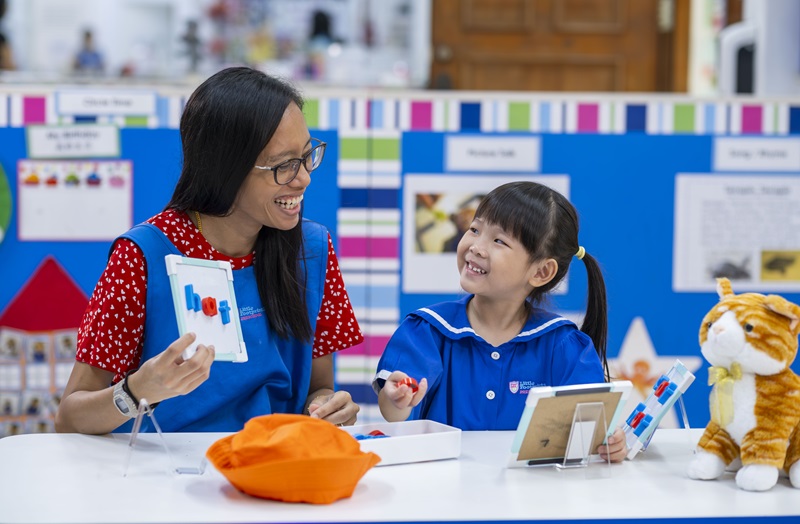
As children progress towards K2, many parents begin to wonder about their Primary 1 preparation. How ready are they for primary school especially for subjects like English, which is the main language?
When preparing for this next milestone, it is good to know what skills children are expected to have for different subject areas. It’s not about over-preparing them such that they are above and beyond when school starts. In fact, being equipped with this knowledge can help children feel more confident and better able to transition to primary one so that parents can manage their expectations.
That said, it is important to keep in mind that every child is different and develops at a different pace. Some children may need more time to learn those skills while parents can play a pivotal role.
Let’s take a look at the key basic skills children must have for English when they progress to primary school and what parents can do to support them.

Primary 1 preparation: English skills your child must know before he starts primary school
#1: Able to write his name
Fundamentally, every primary one child should be able to spell and write his/her name legibly. This is something that the children will be writing in school whenever they receive worksheets, or even when submitting art homework.
At home, parents can practise tracing letters with pencils, markers or crayons. Make it fun by using letter stickers or magnets to help children piece together their names when learning to spell.
#2: Able to listen, understand and follow instructions
Class sizes are up to 30, an increase from the enrolment at kindergartens or childcare centres in Singapore.
Being able to listen, understand and follow the teachers’ instructions will be essential so that children are kept safe and can do what they need to. This relates to active listening skills, grammar and vocabulary skills. It could be the child asking for permission to use the washroom. Or perhaps, the teacher gives instructions to the class about what to do for homework.
How to improve a child’s ability to listen to instructions? Parents should use simple English, maintain eye contact and give simple instructions one at a time. You can also get your child to repeat the instructions and, thereafter, observe to see if he can follow through.
#3: Can communicate and express himself
It is important for your child to be able to express their needs and wants effectively. During class discussions in primary one, children will also need to share their thoughts and ideas verbally and through writing.
Talking to your child not only allows you to understand what he/she thinks and how they feel. Besides strengthening your relationship, casual chit-chats or discussions about topics your child is interested in, or even the news, can help support him in being a more effective communicator.

#4: Knows how to read and is familiar with phonics
These days, most children are exposed to reading programmes when they attend childcare in Singapore and can grasp phonetic sounds by K2. After all, this is aligned with children’s literacy milestone development stages too, which gets them ready for primary school.
Understand that not all children will be fluent readers before primary school starts. For those who need guidance, most primary schools offer a reading support programme to assist. Parents can also play an active role in cultivating reading habits by reading with and reading to their children. With consistent exposure, enjoyment for reading is enhanced and your child will be able to read more words, boosting his/her confidence too.
#5: Able to spell
The Early Childhood Development Agency (ECDA) considers spelling as a learning objective for K2 children and is integrated into most childcare programmes. Similarly, spelling is part and parcel of the primary school curriculum.
Being able to spell improves a child’s confidence in reading and sets the foundation for writing, thus spelling is important for preschoolers. If your child has never been exposed to spelling, it’s time to get them familiarised with how it works.
There are home-based activities that are fun ideas for parents to do with children, to sharpen their spelling and writing skills. Additionally, play spelling-on-the-go games in car or train rides instead of offering screentime.
Primary 1 preparation fully taken care of within our childcare programme
Since 2009, the Singapore Ministry of Education (MOE) rolled out the Strategies for English Language Learning And Reading (STELLAR) curriculum in primary schools. Without textbooks, children from P1 are exposed to creative, expressive and interactive activities like Show and Tell and Journal Writing across multi-platforms. This interactive literacy programme comprises a holistic approach, nurturing P1 children to converse confidently, be strong listeners and take on writing tasks.
Besides a holistic bilingual programme tailored for early learners, we also nurture their social and learning skills that are beyond just academic-related ones. During the last term of K2 at Little Footprints Preschool, students undergo a P1 Prep programme, where they are introduced to class settings and routines to expect in primary school.
Find out how Little Footprints Preschool’s comprehensive curriculum helps to prepare children for primary school. Book a centre tour to visit your nearest centre.
Follow us on social media to stay updated on our latest updates and happenings:




